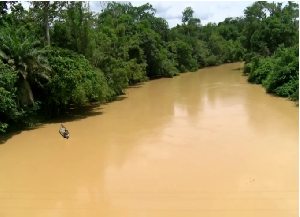The country’s tree crops sector is reeling over an impending vote by the European Union (EU) parliament to postpone, or validate, its proposed implementation date for the crucial EU Deforestation Regulation (EUDR).
Initially, the regulation was expected to come into force for most companies and organisations which trade with the EU bloc from December 30, 2024.
The European Parliament is preparing for a crucial vote on November 13 and 14, 2024. The decision will determine whether enforcement of the law will be postponed or begin as scheduled on December 30, 2024.
In this regard, companies and organisations have to demonstrate that their products are deforestation-free and not linked to forest degradation – or illegal harvesting and trade.
Obviously, this regulation will affect the cocoa, oil palm, cashew, coconut and coffee sectors among others. A consensus to delay the regulation, when approved or agreed by the EU parliament, may grant another one-year grace period to traders and exporters – up to January 1, 2026.
In view of this, agriculture sector stakeholders are apprehensive that issues of galamsey, which have thrived in the past few months, may dent Ghana’s quest to make a case when the regulation begins.
However, the EU maintains that the cocoa sector is much better prepared for the EUDR than other commodity sectors since the country and Ivory Coast prioritised a national approach and have, from a long time ago, started investing heavily in farm traceability approaches.
This does not mean we should rest on our oars, since it is a signal that we have to be more open about the source of our products in the European market since issues of illegal logging and deforestation are given the utmost esteem when it comes to our European partners.
In other words, if we intend to penetrate global markets then we should be up and doing in regard to sustainable development and not just pay it lip service, since the more developed markets make these considerations contingent on trade.
This is a clear indication that products which are not sourced properly will be barred from entering those markets.
Click to view details



Business News of Monday, 11 November 2024
Source: thebftonline.com

















